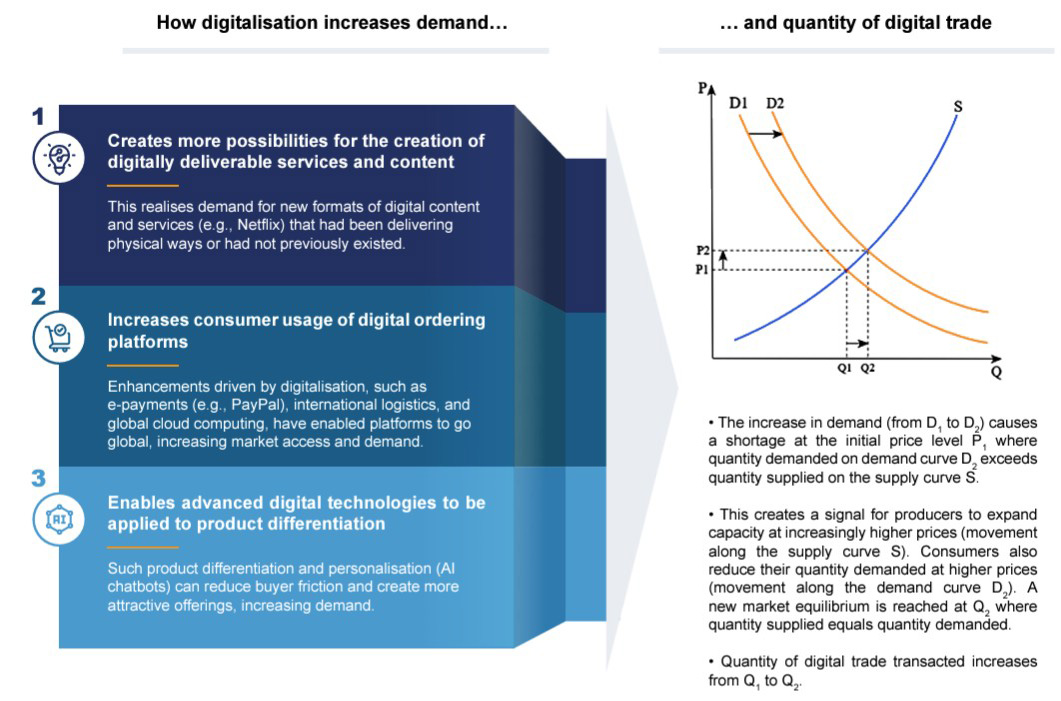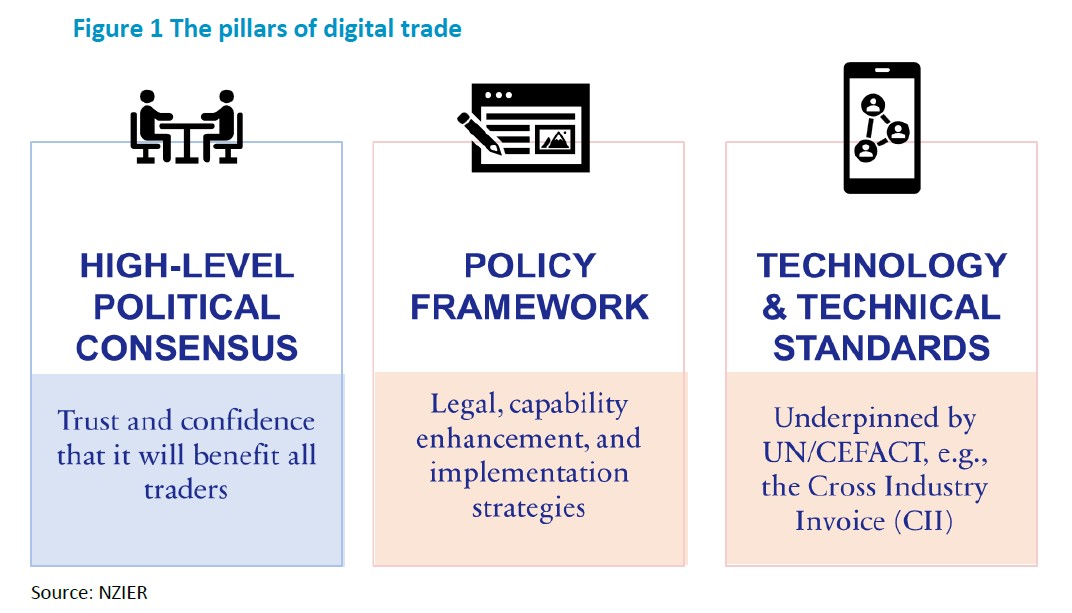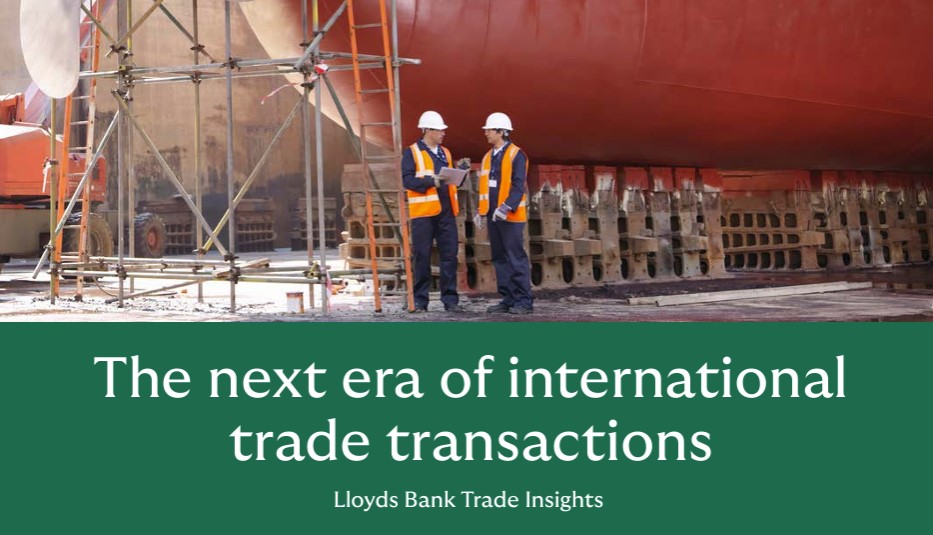MLETR
-
The 2024 APEC Economic Leaders’ Meeting concluded in Lima, Peru, with the issuance of the Machu Picchu Declaration, underscoring the commitment of the 21 member economies to foster inclusive and sustainable economic growth in the Asia-Pacific region. Key Highlights of the Declaration: The Machu Picchu Declaration reflects APEC’s ongoing efforts to address regional challenges and Read more
-
Digitalisation has significantly changed how international trade is conducted, both via the use of digital platforms to facilitate the exchange of non-digital goods and services, as well as through the increase in digitally deliverable exports, including financial and professional services, and mobile apps and content. The impact of digitalisation of trade is of particular significance Read more
-
New Zealand Institute of Economic Researches (NZIER) has investigated what is needed to drive and develop a paperless trade environment for government and non-government supply chain participants. The gains from introducing paperless trade are significant to the point where they potentially match a high-quality trade agreement that delivers benefits year-on-year (NZIER 2021). The gains are Read more
-
This report outlines a National Action Plan designed to enhance Kazakhstan’s digital trade integration within the Asia-Pacific region. Addressing gaps in digital trade policies will foster a more competitive and transparent environment for businesses and investors in Kazakhstan’s digital economy. Using ESCAP’s Regional Digital Trade Integration Index (RDTII) framework and database, this paper identifies priority Read more
-
Trafigura Leads the Way with a Groundbreaking $2.885 Billion Syndicated Facility Leveraging Electronic Bills of Lading (eBL)

In a transformative move for global trade finance, Trafigura, in partnership with ING and 27 other lenders, has successfully executed a $2.885 billion borrowing base facility using electronic Bills of Lading (eBL) as collateral. This pioneering transaction demonstrates the growing influence of digitization in trade finance, supported by the UK’s Electronic Trade Documents Act (ETDA), Read more
-
The global economy has experienced a rapid growth in digitally facilitated and delivered trade in goods and services. The Government has adopted a “consciously broad” definition of digital trade to reflect this trend. While we understand that trade is increasingly digital, such breadth may be an obstacle to identifying areas for improvement. We suggest that Read more
-
Driving the Future of Trade Finance: How Digital Standards are Paving the Way for Paperless Trade

At Sibos 2024 in Beijing, industry leaders convened to discuss the accelerating digitalisation of global trade. A notable session featured Ben Arber, CEO of Complidata, in conversation with Pamela Mar, Managing Director of the Digital Standards Initiative (DSI) at the International Chamber of Commerce (ICC). Their discussion centered on the transition to paperless trade finance Read more
-
The digital revolution has redefined global commerce. From the exchange of goods and services to the facilitation of international supply chains, digital trade has become an essential component of economic development. In this context, the European Union (EU) has recognized the imperative need to integrate digital considerations into its trade policies, thereby shaping a comprehensive Read more
-
UNCITRAL’s Framework for Negotiable Cargo Documents: Modernizing International Trade

The UNCITRAL Negotiable Cargo Documents framework is designed to modernize and harmonize the legal rules governing documents used in the transport of goods, particularly in international trade. These documents, commonly known as bills of lading, play a crucial role in shipping by serving as evidence of the contract of carriage, a receipt for the goods, Read more
-
Until the recent drive towards digitalisation and modernisation, the processes involved in an international end-to-end transaction could be long, cumbersome and expensive. From the shipping of goods to the payment of an invoice, the overall transaction would take place through a collection of individual, fragmented and often siloed procedures, from the issuance of paper trade Read more







